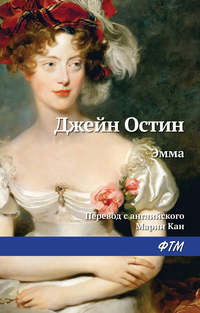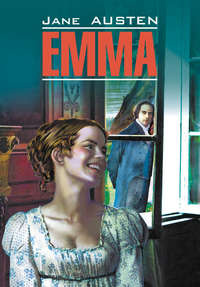
Полная версия
Collins Classics
“I do not mean to take exception to any place in particular,” answered Mr. Heywood. “I only think our coast is too full of them altogether. But had we not better try to get you—”
“Our coast too full!” repeated Mr. Parker. “On that point perhaps we may not totally disagree. At least there are enough. Our coast is abundant enough. It demands no more. Everybody’s taste and everybody’s finances may be suited. And those good people who are trying to add to the number are, in my opinion, excessively absurd and must soon find themselves the dupes of their own fallacious calculations. Such a place as Sanditon, sir, I may say was wanted, was called for. Nature had marked it out, had spoken in most intelligible characters. The finest, purest sea breeze on the coast—acknowledged to be so—excellent bathing—fine hard sand—deep water ten yards from the shore—no mud—no weeds—no slimy rocks. Never was there a place more palpably designed by nature for the resort of the invalid—the very spot which thousands seemed in need of! The most desirable distance from London! One complete, measured mile nearer than Eastbourne. Only conceive, sir, the advantage of saving a whole mile in a long journey. But Brinshore, sir, which I dare say you have in your eye—the attempts of two or three speculating people about Brinshore this last year to raise that paltry hamlet lying as it does between a stagnant marsh, a bleak moor and the constant effluvia of a ridge of putrefying seaweed—can end in nothing but their own disappointment. What in the name of common sense is to recommend Brinshore? A most insalubrious air—roads proverbially detestable—water brackish beyond example—impossible to get a good dish of tea within three miles of the place. And as for the soil it is so cold and ungrateful that it can hardly be made to yield a cabbage. Depend upon it, sir, that this is a most faithful Brinshore—not in the smallest degree exaggerated—and if you have heard it differently spoken of—”
“Sir, I never heard it spoken of in my life before,” said Mr. Heywood. “I did not know there was such a place in the world.”
“You did not! There, my dear,” turning with exultation to his wife, “you see how it is. So much for the celebrity of Brinshore! This gentleman did not know there was such a place in the world. Why, in truth, sir, I fancy we may apply to Brinshore that line of the poet Cowper in his description of the religious cottager, as opposed to Voltaire—She, never heard of half a mile from home.”
“With all my heart, sir, apply any verses you like to it. But I want to see something applied to your leg. And I am sure by your lady’s countenance that she is quite of my opinion and thinks it a pity to lose any more time. And here come my girls to speak for themselves and their mother.” (Two or three genteel-looking young women, followed by as many maid servants, were now seen issuing from the house.) “I began to wonder the bustle should not have reached them. A thing of this kind soon makes a stir in a lonely place like ours. Now, sir, let us see how you can be best conveyed into the house.”
The young ladies approached and said everything that was proper to recommend their father’s offers, and in an unaffected manner calculated to make the strangers easy. And, as Mrs. Parker was exceedingly anxious for relief, and her husband by this time not much less disposed for it, a very few civil scruples were enough; especially as the carriage, being now set up, was discovered to have received such injury on the fallen side as to be unfit for present use. Mr. Parker was therefore carried into the house and his carriage wheeled off to a vacant barn.
CHAPTER 2
The acquaintance, thus oddly begun, was neither short nor unimportant. For a whole fortnight the travellers were fixed at Willingden, Mr. Parker’s sprain proving too serious for him to move sooner. He had fallen into very good hands. The Heywoods were a thoroughly respectable family and every possible attention was paid, in the kindest and most unpretending manner, to both husband and wife. He was waited on and nursed, and she cheered and comforted with unremitting kindness; and as every office of hospitality and friendliness was received as it ought, as there was not more good will on one side than gratitude on the other, nor any deficiency of generally pleasant manners in either, they grew to like each other, in the course of that fortnight, exceedingly well.
Mr. Parker’s character and history were soon unfolded. All that he understood of himself, he readily told, for he was very open-hearted; and where he might be himself in the dark, his conversation was still giving information, to such of the Heywoods as could observe. By such he was perceived to be an enthusiast on the subject of Sanditon, a complete enthusiast. Sanditon—the success of Sanditon as a small, fashionable bathing place, was the object for which he seemed to live. A very few years ago, it had been a quiet village of no pretensions, but some natural advantages in its position and some accidental circumstances having suggested to himself, and the other principal landholder, the probability of its becoming a profitable speculation, they had engaged in it, and planned and built, and praised and puffed, and raised it to something of young renown; and Mr. Parker could now think of very little besides.
The facts which, in more direct communication, he laid before them were that he was about five and thirty, had been married—very happily married—seven years, and had four sweet children at home; that he was of a respectable family and easy, though not large, fortune; no profession—succeeding as eldest son to the property which two or three generations had been holding and accumulating before him—that he had two brothers and two sisters, all single and all independent—the eldest of the two former indeed, by collateral inheritance, quite as well provided for as himself.
His object in quitting the high road to hunt for an advertising surgeon was also plainly stated. It had not proceeded from any intention of spraining his ankle or doing himself any other injury for the good of such surgeon, nor (as Mr. Heywood had been apt to suppose) from any design of entering into partnership with him. It was merely in consequence of a wish to establish some medical man at Sanditon, which the nature of the advertisement induced him to expect to accomplish in Willingden. He was convinced that the advantage of a medical man at hand would very materially promote the rise and prosperity of the place, would in fact tend to bring a prodigious influx—nothing else was wanting. He had strong reason to believe that one family had been deterred last year from trying Sanditon on that account and probably very many more—and his own sisters, who were sad invalids and whom he was very anxious to get to Sanditon this summer, could hardly be expected to hazard themselves in a place where they could not have immediate medical advice.
Upon the whole, Mr. Parker was evidently an amiable family man, fond of wife, children, brothers and sisters, and generally kind-hearted; liberal, gentlemanlike, easy to please; of a sanguine turn of mind, with more imagination than judgement. And Mrs. Parker was as evidently a gentle, amiable, sweet-tempered woman, the properest wife in the world for a man of strong understanding but not of a capacity to supply the cooler reflection which her own husband sometimes needed; and so entirely waiting to be guided on every occasion that whether he was risking his fortune or spraining his ankle, she remained equally useless.
Sanditon was a second wife and four children to him, hardly less dear, and certainly more engrossing. He could talk of it forever. It had indeed the highest claims; not only those of birthplace, property and home; it was his mine, his lottery, his speculation and his hobby horse; his occupation, his hope and his futurity. He was extremely desirous of drawing his good friends at Willingden thither; and his endeavours in the cause were as grateful and disinterested as they were warm.
He wanted to secure the promise of a visit, to get as many of the family as his own house would contain, to follow him to Sanditon as soon as possible; and, healthy as they all undeniably were, foresaw that every one of them would be benefited by the sea. He held it indeed as certain that no person could be really well, no person (however upheld for the present by fortuitous aids of exercise and spirits in a semblance of health) could be really in a state of secure and permanent health without spending at least six weeks by the sea every year. The sea air and sea bathing together were nearly infallible, one or the other of them being a match for every disorder of the stomach, the lungs or the blood. They were anti-spasmodic, anti-pulmonary, anti-septic, anti-billious and anti-rheumatic. Nobody could catch cold by the sea; nobody wanted appetite by the sea; nobody wanted spirits; nobody wanted strength. Sea air was healing, softening, relaxing, fortifying and bracing seemingly just as was wanted sometimes one, sometimes the other. If the sea breeze failed, the sea-bath was the certain corrective; and where bathing disagreed, the sea air alone was evidently designed by nature for the cure.
His eloquence, however, could not prevail. Mr. and Mrs. Heywood never left home. Marrying early and having a very numerous family, their movements had long been limited to one small circle; and they were older in habits than in age. Excepting two journeys to London in the year to receive his dividends, Mr. Heywood went no farther than his feet or his well-tried old horse could carry him; and Mrs. Heywood’s adventurings were only now and then to visit her neighbours in the old coach which had been new when they married and fresh-lined on their eldest son’s coming of age ten years ago. They had a very pretty property; enough, had their family been of reasonable limits, to have allowed them a very gentlemanlike share of luxuries and change; enough for them to have indulged in a new carriage and better roads, an occasional month at Tunbridge Wells, and symptoms of the gout and a winter at Bath. But the maintenance, education and fitting out of fourteen children demanded a very quiet, settled, careful course of life, and obliged them to be stationary and healthy at Willingden.
What prudence had at first enjoined was now rendered pleasant by habit. They never left home and they had gratification in saying so. But very far from wishing their children to do the same, they were glad to promote their getting out into the world as much as possible. They stayed at home that their children might get out; and, while making that home extremely comfortable, welcomed every change from it which could give useful connections or respectable acquaintance to sons or daughters. When Mr. and Mrs. Parker, therefore, ceased from soliciting a family visit and bounded their views to carrying back one daughter with them, no difficulties were started. It was general pleasure and consent.
Their invitation was to Miss Charlotte Heywood, a very pleasing young woman of two and twenty, the eldest of the daughters at home and the one who, under her mother’s directions, had been particularly useful and obliging to them; who had attended them most and knew them best. Charlotte was to go, with excellent health, to bathe and be better if she could; to receive every possible pleasure which Sanditon could be made to supply by the gratitude of those she went with; and to buy new parasols, new gloves and new brooches for her sisters and herself at the library, which Mr. Parker was anxiously wishing to support.
All that Mr. Heywood himself could be persuaded to promise was that he would send everyone to Sanditon who asked his advice, and that nothing should ever induce him (as far as the future could be answered for) to spend even five shilling at Brinshore.
CHAPTER 3
Every neighbourhood should have a great lady. The great lady of Sanditon was Lady Denham; and in their journey from Willingden to the coast, Mr. Parker gave Charlotte a more detailed account of her than had been called for before. She had been necessarily often mentioned at Willingden for being his colleague in speculation. Sanditon itself could not be talked of long without the introduction of Lady Denham. That she was a very rich old lady, who had buried two husbands, who knew the value of money, and was very much looked up to and had a poor cousin living with her, were facts already known; but some further particulars of her history and her character served to lighten the tediousness of a long hill, or a heavy bit of road, and to give the visiting young lady a suitable knowledge of the person with whom she might now expect to be daily associating.
Lady Denham had been a rich Miss Brereton, born to wealth but not to education. Her first husband had been a Mr. Hollis, a man of considerable property in the country, of which a large share of the parish of Sanditon, with manor and mansion house, made a part. He had been an elderly man when she married him, her own age about thirty. Her motives for such a match could be little understood at the distance of forty years, but she had so well nursed and pleased Mr. Hollis that at his death he left her everything—all his estates, and all at her disposal. After a widowhood of some years, she had been induced to marry again. The late Sir Harry Denham, of Denham Park in the neighbourhood of Sanditon, had succeeded in removing her and her large income to his own domains, but he could not succeed in the views of permanently enriching his family which were attributed to him. She had been too wary to put anything out of her own power and when, on Sir Harry’s decease, she returned again to her own house at Sanditon, she was said to have made this boast to a friend: “that though she had got nothing but her title from the family, still she had given nothing for it.”
For the title, it was to be supposed, she had married; and Mr. Parker acknowledged there being just such a degree of value for it apparent now, as to give her conduct that natural explanation. “There is at times,” said he, “a little self-importance but it is not offensive and there are moments, there are points, when her love of money is carried greatly too far. But she is a good-natured woman, a very good-natured woman—a very obliging, friendly neighbour; a cheerful, independent, valuable character and her faults may be entirely imputed to her want of education. She has good natural sense, but quite uncultivated. She has a fine active mind as well as a fine healthy frame for a woman of seventy, and enters into the improvement of Sanditon with a spirit truly admirable. Though now and then, a littleness will appear. She cannot look forward quite as I would have her and takes alarm at a trifling present expense without considering what returns it will make her in a year or two. That is—awe thinkdifferently, we now and then see things differently, Miss Heywood. Those who tell their own story, you know, must be listened to with caution. When you see us in contact, you will judge for yourself.”
Lady Denham was indeed a great lady beyond the common wants of society, for she had many thousands a year to bequeath, and three distinct sets of people to be courted by: her own relations, who might very reasonably wish for her original thirty thousand pounds among them; the legal heirs of Mr. Hollis, who must hope to be more indebted to her sense of justice than he had allowed them to be to his; and those members of the Denham family whom her second husband had hoped to make a good bargain for. By all of these, or by branches of them, she had no doubt been long, and still continued to be, well attacked; and of these three divisions, Mr. Parker did not hesitate to say that Mr. Hollis’s kindred were the least in favour and Sir Harry Denham’s the most. The former, he believed, had done themselves irremediable harm by expressions of very unwise and unjustifiable resentment at the time of Mr. Hollis’s death; the latter had the advantage of being the remnant of a connection which she certainly valued, of having been known to her from their childhood and of being always at hand to preserve their interest by reasonable attention. Sir Edward, the present baronet, nephew to Sir Harry, resided constantly at Denham Park; and Mr. Parker had little doubt that he and his sister, Miss Denham, who lived with him, would be principally remembered in her will. He sincerely hoped it. Miss Denham had a very small provision; and her brother was a poor man for his rank in society.
“He is a warm friend to Sanditon,” said Mr. Parker, “and his hand would be as liberal as his heart, had he the power. He would be a noble coadjutor! As it is, he does what he can and is running up a tasteful little cottage ornèe, on a strip of waste ground Lady Denham has granted him, which I have no doubt we shall have many a candidate for, before the end even of this season.”
Till within the last twelvemonth, Mr. Parker had considered Sir Edward as standing without a rival, as having the fairest chance of succeeding to the greater part of all that she had to give; but there were now another person’s claims to be taken into account, those of the young female relation whom Lady Denham had been induced to receive into her family. After having always protested against any such addition, and long and often enjoyed the repeated defeats she had given to every attempt of her relations to introduce this young lady or that young lady as a companion at Sanditon House, she had brought back with her from London last Michaelmas a Miss Brereton, who bid fair by her merits to vie in favour with Sir Edward and to secure for herself and her family that share of the accumulated property which they had certainly the best right to inherit.
Mr. Parker spoke warmly of Clara Brereton, and the interest of his story increased very much with the introduction of such a character. Charlotte listened with more than amusement now; it was solicitude and enjoyment, as she heard her described to be lovely, amiable, gentle, unassuming, conducting herself uniformly with great good sense, and evidently gaining by her innate worth on, the affections of her patroness. Beauty, sweetness, poverty and dependence do not want the imagination of a man to operate upon; with due exceptions, woman feels for woman very promptly and compassionately. He gave the particulars which had led to Clara’s admission at Sanditon as no bad exemplification of that mixture of character, that union of littleness with kindness with good sense with even liberality which he saw in Lady Denham.
After having avoided London for many years, principally on account of these very cousins who were continually writing, inviting and tormenting her, and whom she was determined to keep at a distance, she had been obliged to go there last Michaelmas with the certainty of being detained at least a fortnight. She had gone to a hotel, living by her own account as prudently as possible to defy the reputed expensiveness of such a home, and at the end of three days calling for her bill that she might judge of her state. Its amount was such as determined her on staying not another hour in the house, and she was preparing in all the anger and perturbation of her belief in very gross imposition there, and her ignorance of where to go for better usage, to leave the hotel at all hazards, when the cousins, the politic and lucky cousins, who seemed always to have a spy on her, introduced themselves at this important moment, and learning her situation, persuaded her to accept such a home for the rest of her stay as their humbler house in a very inferior part of London could offer.
She went; was delighted with her welcome and the hospitality and attention she received from everybody—found her good cousins the Breretons beyond her expectation worthy people—and finally was impelled by a personal knowledge of their narrow income and pecuniary difficulties to invite one of the girls of the family to pass the winter with her. The invitation was to one, for six months—with the probability of another being then to take her place—but in selecting the one, Lady Denham had shown the good part of her character. For, passing by the actual daughters of the house, she had chosen Clara, a niece—more helpless and more pitiable of course than any—a dependent on poverty—an additional burden on an encumbered circle—and one who had been so low in every worldly view as, with all her natural endowments and powers, to have been preparing for a situation little better than a nursery maid.
Clara had returned with her—and by her good sense and merit had now, to all appearance, secured a very strong hold in Lady Denham’s regard. The six months had long been over—and not a syllable was breathed of any change or exchange. She was a general favourite. The influence of her steady conduct and mild, gentle temper was felt by everybody. The prejudices which had met her at first, in some quarters, were all dissipated. She was felt to be worthy of trust, to be the very companion who would guide and soften Lady Denham, who would enlarge her mind and open her hand. She was as thoroughly amiable as she was lovely—and since having had the advantage of their Sanditon breezes, that loveliness was complete.
CHAPTER 4
“And whose very snug-looking place is this?” said Charlotte as, in a sheltered dip within two miles of the sea, they passed close by a moderate-sized house, well fenced and planted, and rich in the garden, orchard and meadows which are the best embellishments of such a dwelling. “It seems to have as many comforts about it as Willingden.”
“Ah,” said Mr. Parker. “This is my old house, the house of my forefathers, the house where I and all my brothers and sisters were born and bred, and where my own three eldest children were born; where Mrs. Parker and I lived till within the last two years, till our new house was finished. I am glad you are pleased with it. It is an honest old place; and Hillier keeps it in very good order. I have given it up, you know, to the man who occupies the chief of my land. He gets a better house by it, and I, a rather better situation! One other hill brings us to Sanditon—modern Sanditon—a beautiful spot. Our ancestors, you know, always built in a hole. Here were we, pent down in this little contracted nook, without air or view, only one mile and three quarters from the noblest expanse of ocean between the South Foreland and Land’s End, and without the smallest advantage from it. You will not think I have made a bad exchange when we reach Trafalgar House—which by the bye, I almost wish I had not named Trafalgar—for Waterloo is more the thing now. However, Waterloo is in reserve; and if we have encouragement enough this year for a little crescent to be ventured on, as I trust we shall, then we shall be able to call it Waterloo Crescent—and the name joined to the form of the building, which always takes, will give us the command of lodgers. In a good season we should have more applications than we could attend to.”
“It was always a very comfortable house,” said Mrs. Parker, looking at it through the back window with something like the fondness of regret. “And such a nice garden such an excellent garden.”
“Yes, my love, but that we may be said to carry with us. It supplies us, as before, with all the fruit and vegetables we want. And we have, in fact, all the comfort of an excellent kitchen garden without the constant eyesore of its formalities or the yearly nuisance of its decaying vegetation. Who can endure a cabbage bed in October?”
“Oh dear, yes. We are quite as well off for garden stuff as ever we were; for if it is forgot to be brought at any time, we can always buy what we want at Sanditon House. The gardener there is glad enough to supply us. But it was a nice place for the children to run about in. So shady in summer!”
“My dear, we shall have shade enough on the hill, and more than enough in the course of a very few years. The growth of my plantations is a general astonishment. In the meanwhile we have the canvas awning which gives us the most complete comfort within doors. And you can get a parasol at Whitby’s for little Mary at any time, or a large bonnet at Jebb’s. And as for the boys, I must say I would rather them run about in the sunshine than not. I am sure we agree, my dear, in wishing our boys to be as hardy as possible.”








![Love and Freindship [sic]](/covers_200/25019987.jpg)
